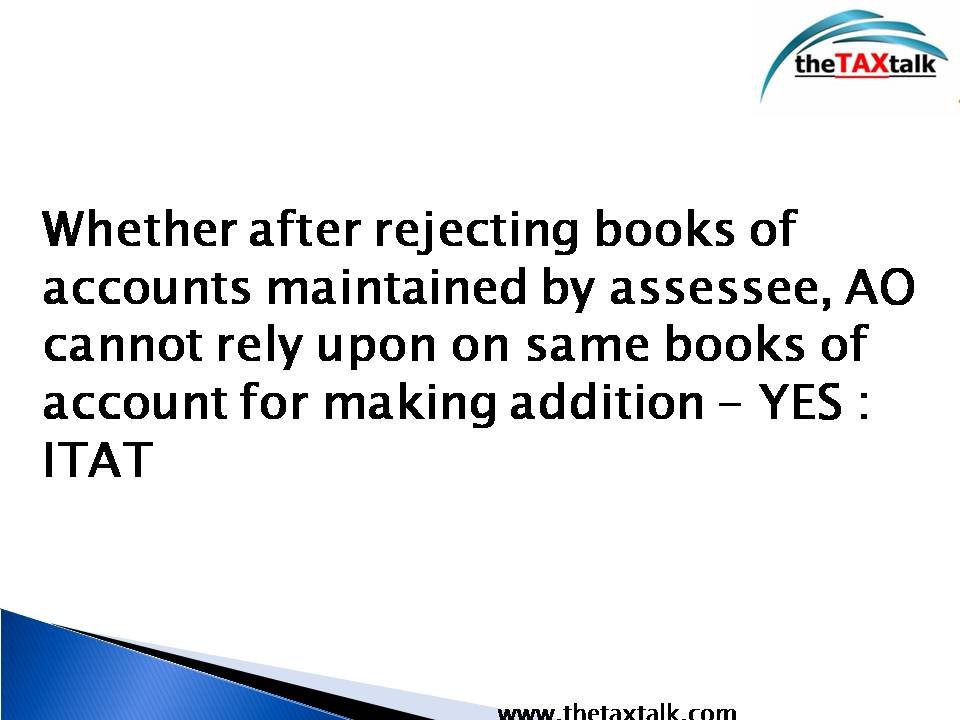![]()
Whether after rejecting books of accounts maintained by assessee, AO cannot rely upon on same books of account for making addition – YES : ITAT
| Here is an interesting case before Pune ITAT where the issue was whether after rejecting books of accounts maintained by assessee, AO can rely upon the same books of account for making additions?
The case detail is as under:
ACIT Vs ISMT Ltd ITA Nos. 2751 & 2752/Pun/2016
In this case, the assessee’s appeal was allowed by Pune ITAT.
Let us have a short overview of the case:
The assessee-company engaged in the business of manufacturing of seamless tubes.
There was a search and seizure in the business premises of the assessee.
During the course of search proceedings, certain documents and papers were seized.
The assessment was completed by the AO u/s 143(3) r.w.s. 153A.
The AO had rejected the book results.
The AO also made an addition of Rs. 2,30,00,000/- on account of scrap out of the total disclosure of Rs. 8,83,00,000/- made on account of alleged difference in valuation of scrap.
On appeal, the CIT (A) upheld rejection of book results and sustained the addition made on account of alleged difference in valuation of scrap.
On appeal, the issue before ITAT was whether after rejecting books of accounts maintained by assessee, AO can rely upon the same books of account for making addition?
ITAT decided the issue in favour of assessee with following observation:
++ the approach of both the authorities is totally flawed for the reason that when the books of accounts stood rejected by both the authorities and when the assessee not challenged the action of the lower authorities rejecting the books of accounts then the only course of action available to the Assessing Officer is to determine the profits by application of flat rate of profits by taking into consideration the business conditions of the assessee and compare it from the profits disclosed by the assessee in the similar line of businesses.
In this connection, reference can be made to the decisions of CIT vs K.Y. Pilliah & Sons, 2002-TIOL-882-SC-IT-LB and Dabros Industrial Co. (P.) Ltd. vs CIT.
It is also settled position of law that the Assessing Officer cannot rely on the same books of accounts which are rejected for the purpose of making any other additions as held by the Andhra Pradesh High Court in the case of Indwell Constructions vs. CIT, 232 ITR 776 (Andhra Pradesh), Rajasthan High Court in the case of Malpani House of Stones vs CIT, 395 ITR 385 (Rajasthan) and Punjab & Haryana High Court in the case of CIT vs Gian Chand Labour Contractors.
In the present case, having rejected the books of accounts maintained by assessee, the Assessing Officer cannot rely upon the same books of account for the purpose of making addition in respect of sale of scrap etc.
Thus, in the light of the settled legal position, the approach of both the authorities is totally flawed and cannot be sustained in the eyes of law.
Thus, the addition made by the Assessing Officer under the normal provisions of the I.T. Act as confirmed by the CIT (A) cannot be sustained under the law.
Accordingly, ground of appeal no. 1 raised by the assessee stands allowed.
|

